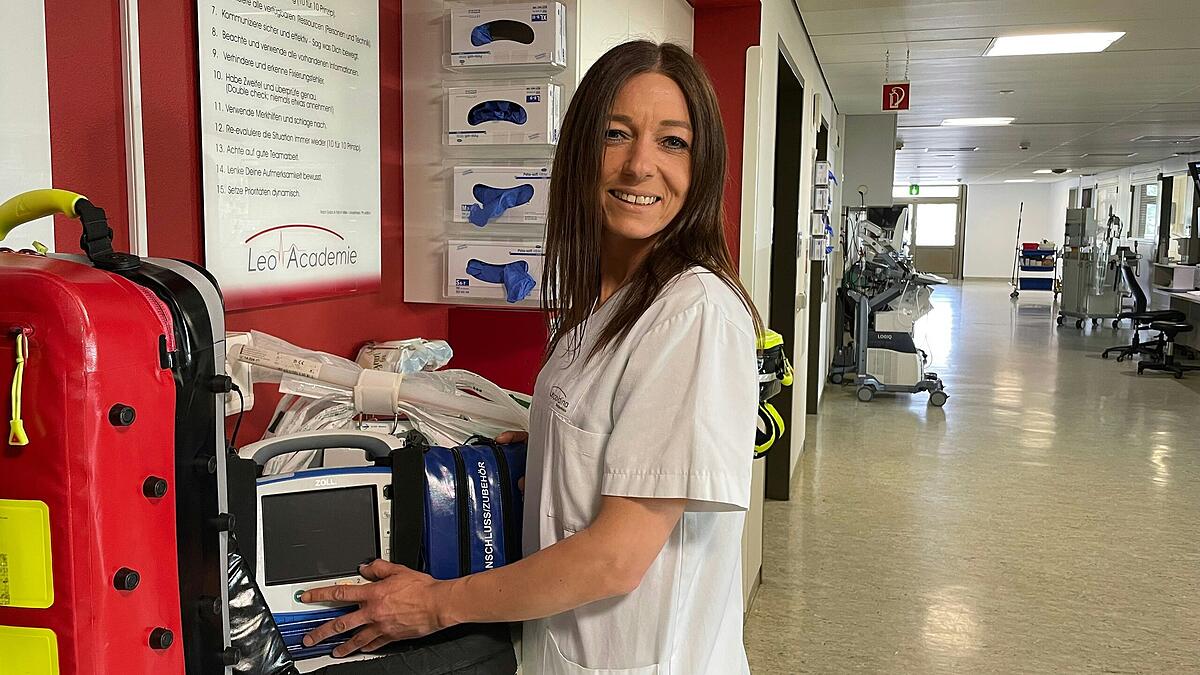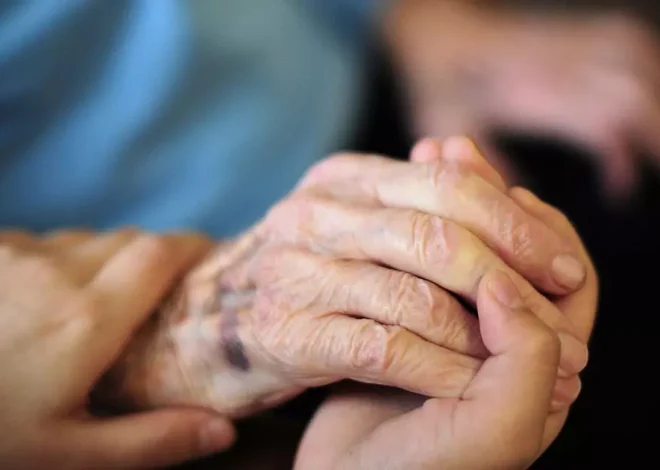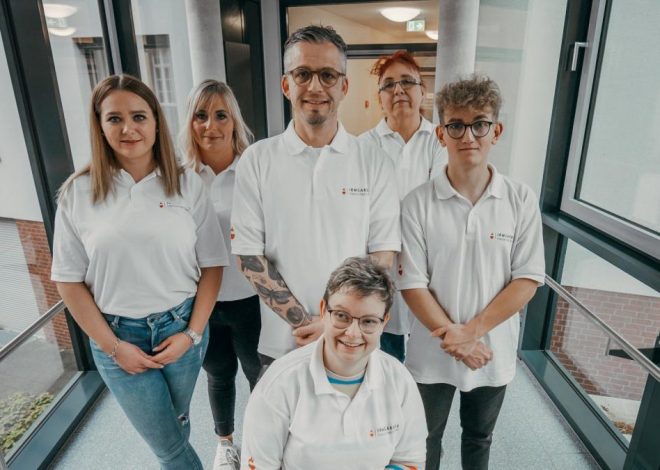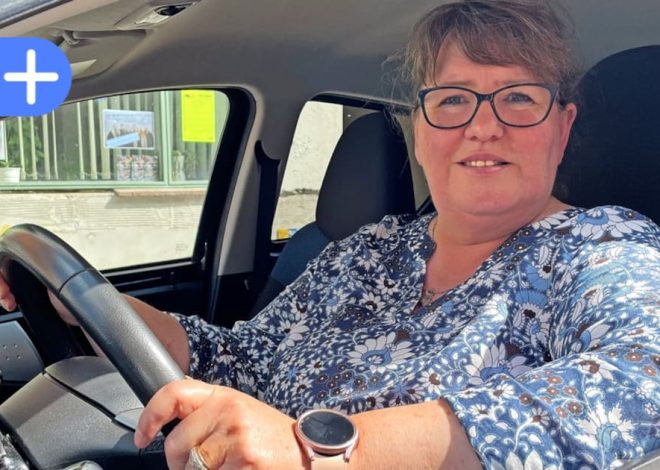
The Leopoldina Hospital Schweinfurt is taking a stand for the nursing profession
Andrea Seltsam has just completed her training as a nursing specialist. As the best in her year. And as one of the oldest. Andrea Seltsam is 38 years old, mother of three, trained bank clerk and trained beautician. The fact that she still took on the demanding training to become a nursing specialist again “was the right decision”. She has been working in the surgical intensive care unit at the Leopoldina Hospital Schweinfurt since April 1st.
The “bad sides” of the nursing profession are repeatedly highlighted in public: high stress, poor pay, constant time pressure. On Nursing Day on May 12th, the Leopoldina Hospital and the Vocational School of Nursing would like to show that nursing has many positive aspects to offer and that this profession can be enriching.
“Professional nursing is so broadly diversified thanks to general studies, everyone finds their place here,” assures headmaster Dirk Niedoba. Because these days it’s about much more than just bedside care. Practicing the profession includes, among other things, extensive specialist knowledge of medicine, logistics, clinical process management and caring for relatives. “This is the actual core business of nursing,” says nursing director Michael Müller. And when it comes to pay, human resources manager Thomas Finzel makes it clear: “Nursing is the best-paid training occupation in Germany.”
90 percent of the trainees stay at Leo
The Leopoldina Hospital Schweinfurt has been providing nursing training since 1930 and, together with the Haßberg Clinics, is the sponsor of the vocational school for nursing, in which 264 trainees are currently being taught. Over half of them come from Leo, and around 90 percent of them stay at Leo after their training, according to HR manager Finzel. “That speaks for our quality.”
Among them are prospective nursing assistants or nursing or geriatric care assistants whose training only lasts one year. During this time you can check whether the job meets your expectations. “Almost half of them then switch directly to the three-year generalist nursing training,” says school principal Niedoba.
The Schweinfurt vocational school was the second in Lower Franconia to offer this branch. It is often used by people retraining, dropouts, returning professionals or migrants to gain a foothold. What’s special: The training starts twice a year, in spring and autumn. “This gives us a unique selling point,” says Niedoba.
Another novelty: From autumn 2025 there will even be part-time training to open up perspectives for single parents or career changers with family ties. Andrea Strange hasn’t been able to use this yet. She completed her training as a nursing specialist while also having a family full-time. “That was stressful.” Above all, balancing school time and studying with the family took a lot of energy.
Flexible working hours on all stations
A lot has changed in nursing in the past few years. For example, working hours, which can be arranged flexibly at the Leopoldina Hospital. “We offer many service models and fulfill almost any working time request,” says nursing director Müller. Julia Hruschka even writes her roster herself. She is one of 52 employees in the so-called Flexipool, which has been available at Leo since October 2021. Employees here get exactly the flexible working hours that their living conditions currently require. In return, they can be used flexibly at the various stations in Leo. These are ideal conditions for the 34-year-old because she can adapt her working hours to the daycare and school times of her two children.
When Julia Hruschka did her training at the Leopoldina Hospital in 2008, this didn’t exist yet. After her parental leave, she went back to work in a doctor’s office because late and night shifts were not compatible with family life. She has been back at Leo since 2023 and is happy to be able to be close to the patient again.
This Thursday Julia Hruschka is working in the neurosurgical ward. Tomorrow it could be gynecology or urology. “I’m all over the house,” says the young nursing specialist, who in this way gains insight into many specialist areas and can acquire a broad range of knowledge. “The wards also benefit from this.”
No shortage of nursing staff at the Leopoldina Hospital
According to Human Resources Manager Finzel, 923 nursing staff are currently working at the Leopoldina Hospital, 602 of whom are full-time. Compared to 2019, this is an increase in personnel of 25 percent. The shortage of nursing staff is only an issue at Leo in certain areas, for example in pediatric nursing. “Thanks to the high take-on rate of trainees, we can generally cover our needs,” says Finzel.
Nursing director Müller also attributes this to the quality of the training. There are 42 practice instructors working at the Leopoldina Hospital who look after the trainees on the wards and gradually introduce them to nursing activities. “They also convey to the trainees that nursing is a meaningful profession,” emphasizes nursing director Müller.
Many further training opportunities for employees
Not only does training have a high priority at Leo, further training is also open to employees. Michaela Schütze took advantage of all the opportunities offered to her. The now 53-year-old completed classic training to become a nurse at the Leopoldina Hospital in the 1990s. Today she is one of 13 case managers who ensure that patients in need of care receive appropriate care from admission to discharge.
“I was always open to new things,” says Michaela Schütze. In her almost 30 years of professional work, she has worked in many different wards, was in child and adolescent psychiatry and most recently was deputy ward manager in the neonatal ward for twelve years. In October 2022 she pressed again went to school and completed additional training in case management at Fulda University.
Since March 2023, Michaela Schütze has been working in patient transfer in the gynecological-urological ward. She is the interface between doctors, nursing staff, patients and relatives and is the external contact for rehabilitation and nursing facilities or social services. “Networking is my main activity,” says the 53-year-old, describing her area of responsibility.
Professional nursing today encompasses a wide range of tasks and areas of application. “It offers something for everyone,” says headmaster Dirk Niedoba. Together with the employment agency, he promotes this profession in schools and at trade fairs so that, in view of the aging society, the care of the many people in need of care can still be secured in the near future.

Ethel Purdy – Medical Blogger & Pharmacist
Bridging the world of wellness and science, Ethel Purdy is a professional voice in healthcare with a passion for sharing knowledge. At 36, she stands at the confluence of medical expertise and the written word, holding a pharmacy degree acquired under the rigorous education systems of Germany and Estonia.
Her pursuit of medicine was fueled by a desire to understand the intricacies of human health and to contribute to the community’s understanding of it. Transitioning seamlessly into the realm of blogging, Ethel has found a platform to demystify complex medical concepts for the everyday reader.
Ethel’s commitment to the world of medicine extends beyond her professional life into a personal commitment to health and wellness. Her hobbies reflect this dedication, often involving research on the latest medical advances, participating in wellness communities, and exploring the vast and varied dimensions of health.
Join Ethel as she distills her pharmaceutical knowledge into accessible wisdom, fostering an environment where science meets lifestyle and everyone is invited to learn. Whether you’re looking for insights into the latest health trends or trustworthy medical advice, Ethel’s blog is your gateway to the nexus of healthcare and daily living.



